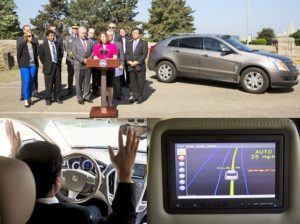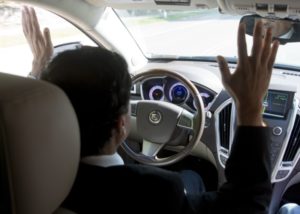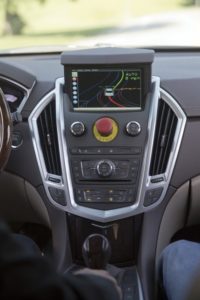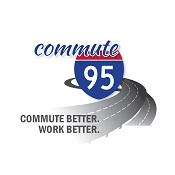
Citing the future anticipated benefits to travel safety, the environment and mobility, PennDOT Secretary Leslie S. Richards recently joined elected, industry and other transportation officials to mark the state’s continued and progressive steps as a national leader in the safe, innovative development of autonomous and connected vehicle technologies.
“We are always looking at ways to make travel safer, and these new vehicle technologies offer a huge opportunity to not only advance our network, but also reduce human behavior as a factor in crashes,” Richards said. “We’re looking forward to expanding on the innovation that’s already alive and well here in Pittsburgh so companies can test their technologies in our state’s varied seasons and roadway types.”
Richards spoke at an event on June 1 in Pittsburgh before the first meeting of a newly established Autonomous Vehicles Testing Policy Task Force that will collaboratively develop guidance that PennDOT will use when drafting autonomous vehicle policy. PennDOT is chairing the task force, which is comprised of state, federal and private-industry officials such as the Federal Highway Administration, AAA, Carnegie Mellon University (CMU) and Uber Technologies.

According to Carnegie Mellon University, which hosted the Task Force meeting and demonstrated its autonomous technologies after the event, the university’s faculty and students have been working for more than 30 years to ensure that self-driving cars will be safe, affordable, and ultimately, accepted by the public. The university has made significant contributions to AV technology inventions and has created 14 generations of self-driving vehicles. The university’s latest self-driving car is a 2011 Cadillac SRX that takes ramps, merges onto highways, and cruises at 70 mph by itself.
Also participating in the event were lawmakers who are sponsoring legislation in the state Senate and House that would establish Pennsylvania as a national leader in autonomous vehicle testing.
The legislation would:
- Provide for controlled automated vehicle testing, not operation
- Allow flexibility to adapt to changing technology
- Require companies interested in testing to submit an application and provide proof of $5 million in general liability insurance
- Allow support for in-vehicle and remote-operator testing, considered the “Full Self-Driving Automation” level, the fourth and highest level of automation as defined by the National Highway Traffic Safety Administration
Various studies and research have pointed to autonomous and connected vehicles as having environmental and travel benefits in addition to reducing human error in driving. Vehicle functions such as maintaining more consistent speeds, communicating with infrastructure or other vehicles, and allow ing highway officials to eventually to invest less in engineering solutions related to human behavior (such as rumble strips) are examples of potential benefits of expanding these technologies.
ing highway officials to eventually to invest less in engineering solutions related to human behavior (such as rumble strips) are examples of potential benefits of expanding these technologies.
At the state level, these steps could quickly bring additional economic opportunities as automotive and technology companies, encouraged by the legislation, could establish themselves in the state.
Additionally, in the future, autonomous vehicles could offer more opportunity for independence for the nation’s millions of older or disabled citizens. According to the U.S. Census, by 2050 there will be an estimated 48 million people over the age of 75 in the U.S.
The task force and legislation build on current and past studies, work groups and coalitions in which PennDOT has participated. The department currently has representatives on the American Association of Motor Vehicle Administrators’ Automated Vehicles Best Practices work group; the American Association of State Highway Transportation Officials Connected and Automated Vehicle Technical Working Group; the Vehicle-to-Infrastructure Deployment Coalition; the Connected Vehicle Pooled Fund Study; and the Transportation Research Board’s Technical Activities Council on Vehicle Automation.





